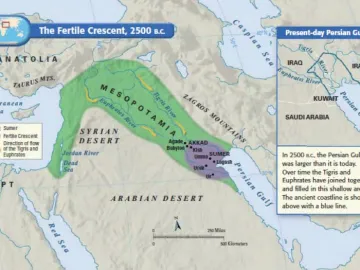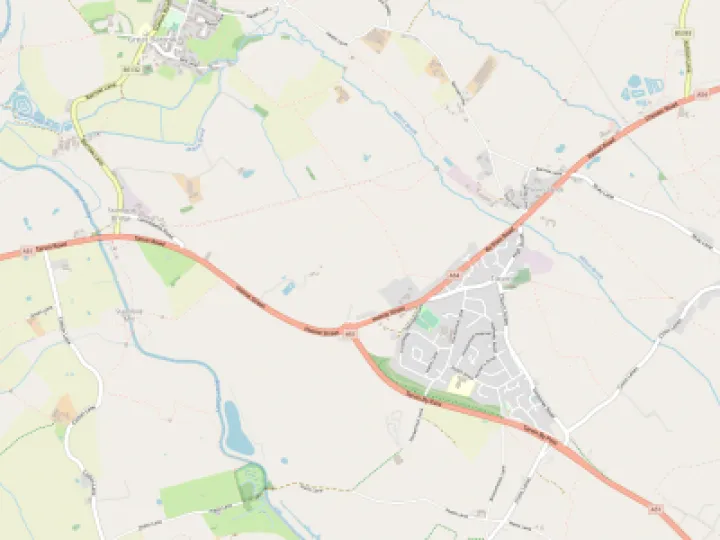Remembering the First World War – Mesopotamia (Now Iraq)
In April 1917, St Andrew's Parish Magazine published this graphic account about conditions in Mesopotamia. It had been sent in by an unknown Tarvin soldier on active service there.

'There is no respite or truce to the plagues of Mesopotamia. The only normal thing in this country on which one can count is that the plague circle is unbroken and that the plagues overlap.
In May the plagues are dust, heat and flies and the greatest of these is flies.
The flies in the tents, dug-outs and trenches unless seen, are unbelievable. To describe them is to hazard one's reputation for truth. You cannot eat without swallowing flies. You wave your spoon of porridge in the air to shake them off; you put your biscuit and bully beef in your pocket and surreptitiously convey them in closed fist to your mouth but swallow flies all the same. They settle in clouds on everything.
I overtook a squadron of cavalry when the hot season had just passed and, in the semi-coma in which the heat wraps one, I thought they were wearing chain armour. I had walked my horse beside them for some minutes before I discovered that what looked like chain-mail was the steely blue metallic mesh of flies. I saw a distant squadron of horse waving their handkerchiefs rhythmically in the air, as if they were cheering and I took it for a trick of the mirage until I discovered that they were waving off flies.
The Mesopotamia variety is indistinguishable from the English housefly except that many of them, one in twenty perhaps, can bite or sting. These apparently are not a different species, only more impregnated with vice!
At night, the flies disappear and the mosquitoes and sand flies relieve them, completing the vicious circle. Mosquitoes are local. In many places you may be spared them altogether but there are districts where they are employed by the gods to plague us as the chief scourge. In one camp I came across a species which could bite through our cord riding breeches.
Sand flies are a more insidious plague. A net with mesh fine enough to exclude them is suffocating and they keep one awake at night with a thin hose of acid playing on one's face. In the first week of May there were attempts to console us with the remark that the flies would soon be dead. "The heat kills them. Fizzles them up like wool in a flame." This by way of consolation when it was 150 (65˚C) in the shade. Still, we looked forward to the heat which could kill the flies.
A year or more in this country with no leave or billets or change of any kind to look forward to makes a long lap in one's service. No doubt the taste of civilisation will be the sweeter for it.
Outside one seldom wears a coat. Force 'D' leads a simple life and is brought up against elemental needs. The Mesopotamian sun corrodes all vanity and the staff officer will ride about in his shirt sleeves, innocent of red tabs. But one wears a sun guard over one's helmet and a spine pad, for one can get sun stroke here through the small of one's back.
The persistent hot wind is better than complete stillness though it bounces off the ground and buffets you, flings the sand and dust in your face. You eat sand, breathe sand, lie in sand, have sand in your ears and eyes and clothes. Sand -flies by night, flies by day until they shrivel up; sand and suffocation by day and night.
There are other kinds of discomfort; different kinds of heat: the moist and tropical heat of the swamps of the Euphrates and the Shatt-el-Arab; the parched and desert heat of the Tigris and the Karum. Each variety has its attendant insects and peculiar ailments which often take the form of boils and eruptions.
On the Karum you may be striken with what is locally known as 'dog-ut' – the legacy of some poisonous fly. The Baghdad boil and the Aleppo date are other ills of this country of which one hears, though I have not encountered them. They leave a permanent impression of Mesopotamia burnt into you – cicatrices* for life.'
*Cicatrices are marks or scars left on the skin
Quick Links
Get In Touch
TarvinOnline is powered by our active community.
Please send us your news and views.





